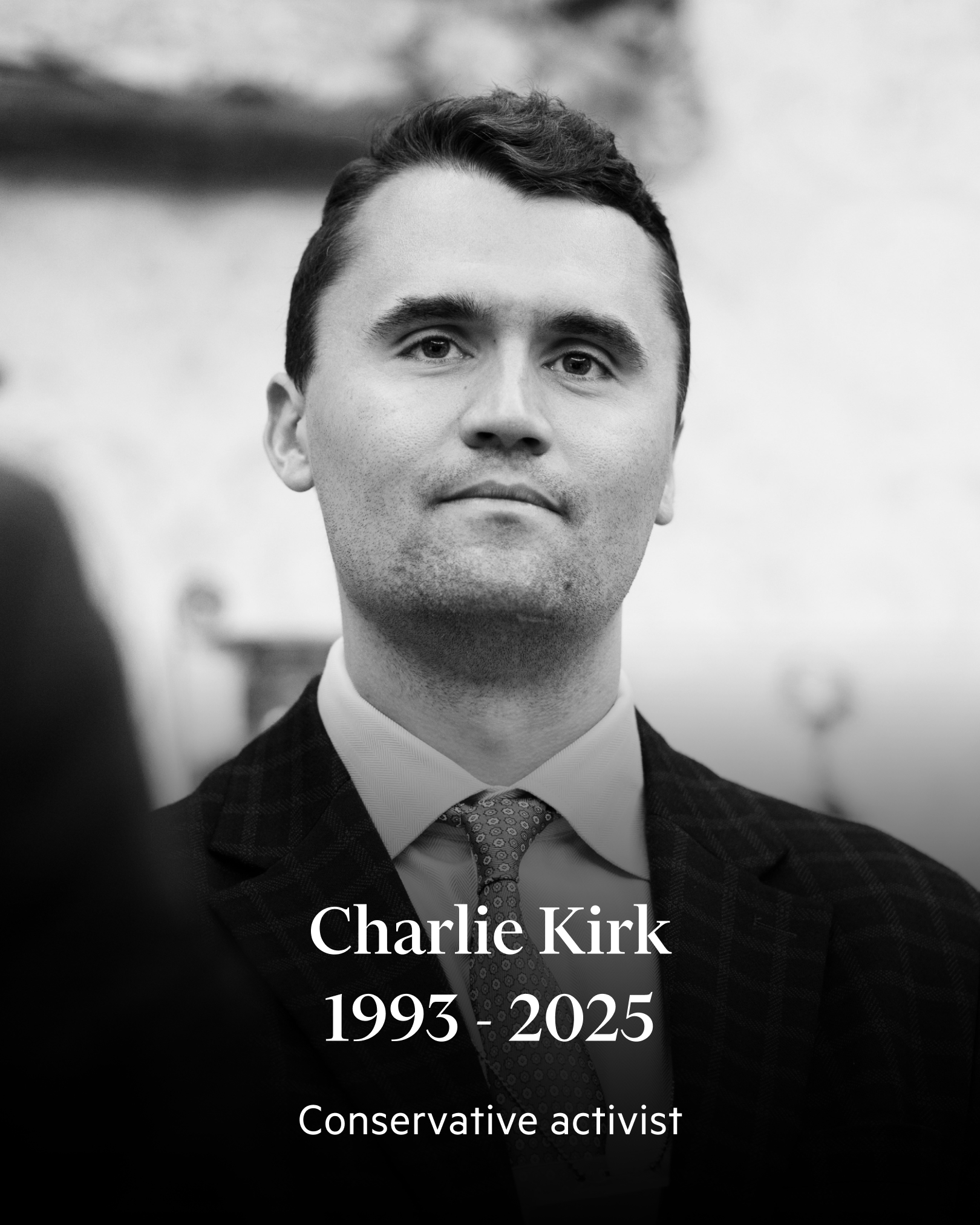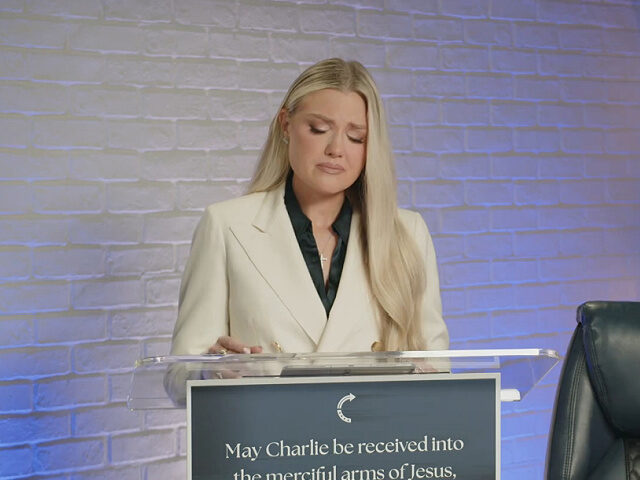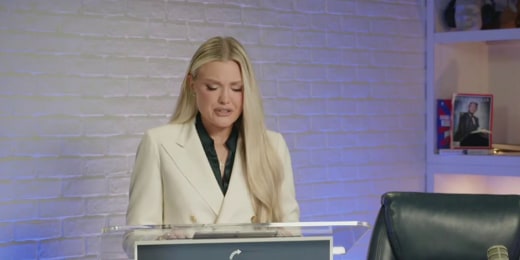‘A Battle Cry’: In Defiant Address, Charlie Kirk’s Widow Vows His Mission Will Be ‘Louder Than Ever’
In the somber, grief-stricken days following the assassination of Charlie Kirk, a nation has been holding its breath, waiting for a sign of how to process a tragedy that has pushed America’s political divisions into the realm of bloodshed. That sign has now arrived, and it is not one of quiet mourning or gentle calls for unity. It is a defiant, powerful, and deeply personal call to arms from the person who knew him best: his widow, Erika Kirk.
Speaking from her late husband’s Turning Point USA office on Friday evening, in what was billed as her address to the nation, Erika Kirk delivered a message of stunning resolve. Her voice, thick with sorrow but unwavering in its purpose, transformed a personal eulogy into a national rallying cry. She declared that the assassins who took her husband’s life had made a catastrophic miscalculation.

“The evildoers responsible for my husband’s assassination have no idea what they have done,” she said, her words crackling with a furious energy. “They should all know this: if you thought that my husband’s mission was powerful before, you have no idea what you just have unleashed across the country and this world.”
This was not the voice of a victim. This was the voice of a woman forging her grief into a weapon. She vowed that her husband’s message of faith and patriotism would now be “stronger, bolder, louder and greater than ever.” In the most powerful line of her address, she made her own promise: “My cries will echo around the world like a battle cry.”
Her speech was a testament to the motto she said her husband lived by: “never surrender.” In that spirit, she made the remarkable announcement that his planned college campus tour—the very tour he was on when he was killed—will continue without him. It was a clear and unequivocal statement that while a man can be killed, his movement, in her eyes, cannot.
Throughout her address, Erika Kirk painted an intimate portrait of her husband, framing his life’s work not merely as a political struggle, but as a spiritual one. She said he was killed because “he preached a message of patriotism, faith and of God’s merciful love,” and that the conflict he was engaged in was, “above all, spiritual.” This deeply personal framing provides a powerful insight into the worldview that fueled Charlie Kirk’s rise and now animates his widow’s fierce determination to carry on his legacy.

Charlie Kirk, the co-founder of the hard-right youth organization Turning Point USA, was a master of provocative and often inflammatory rhetoric. He played a crucial role in mobilizing young people, especially men, for the MAGA movement, and was known for his beliefs that there should be no separation between church and state and that Democrats “stand for everything God hates.” His assassination has brought a renewed and terrifying focus to the escalating threat of political violence in America, drawing widespread bipartisan condemnation.
However, in a stunning interview on Friday morning, President Donald Trump, a close ally of Kirk’s, declined to call for unity, instead stating, “The radicals on the left are the problem.” This stands in stark contrast to Erika Kirk’s message, which, while defiant, was focused on continuing her husband’s mission rather than escalating partisan blame.

In her address, she took a moment to thank law enforcement for the swift arrest of the suspect, 22-year-old Tyler Robinson, as well as her husband’s close friends, including Vice President JD Vance and President Trump. “Mister President, my husband loved you and he knew that you loved him, too,” she said.
But the core of her message was a direct appeal to the next generation. She issued a call to action to high school and college students, urging them to honor her husband’s memory by joining his cause. “He wants you to make a difference and you can,” she implored. “The movement is not going anywhere and it will only go stronger when you join it.” It was a stunning and immediate pivot from grieving widow to movement leader, a clear sign that she intends to be a central figure in ensuring her husband’s work endures.
Erika Kirk’s address has fundamentally reshaped the narrative in the wake of her husband’s death. Where there was a vacuum of grief and uncertainty, there is now a clear and determined path forward for his followers. She has ensured that the final word on her husband’s life will not be the assassin’s bullet, but a battle cry that she intends to make sure is heard around the world.



